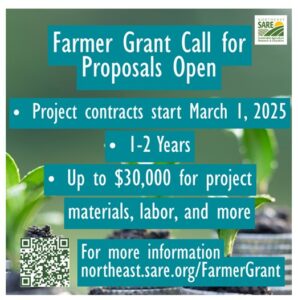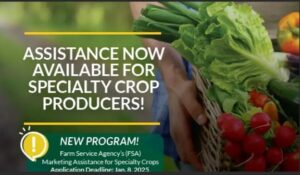 The MASC program, administered by the Farm Service Agency (FSA) using Commodity Credit Corporation (CCC) funds, provides eligible specialty crop producers with marketing assistance payments to help them engage in activities that aid in expanding domestic specialty crop markets or in developing new markets for their specialty crops in 2025.
The MASC program, administered by the Farm Service Agency (FSA) using Commodity Credit Corporation (CCC) funds, provides eligible specialty crop producers with marketing assistance payments to help them engage in activities that aid in expanding domestic specialty crop markets or in developing new markets for their specialty crops in 2025.
SPECIALTY CROPS ELIGIBLE – Fruits (fresh, dried) Nursery crops, Christmas trees, and floriculture, Vegetables (including dry edible beans and peas, mushrooms, and vegetable seed) Culinary and medicinal herbs and spices, Tree nuts, Honey, hops, maple sap, tea, turfgrass, and grass seed. Payments are capped at $125,000 per producer, and if demand exceeds the allocated $2 billion, payments may be prorated. Final payment factors will be determined after the application period closes.
To be eligible for payments, persons or legal entities must:
• Be in the business of producing a specialty crop at the time of application and be entitled to an ownership share and share in the risk of producing a specialty crop that will be sold in calendar year 2025;
• Be a U.S. citizen, resident alien, partnership, corporation, limited liability company, or other organizational structure organized under State law, Indian Tribe or Tribal Organization, or a foreign person or foreign entity who meets certain eligibility requirements;
• Comply with the provisions of the “Highly Erodible Land and Wetland Conservation” regulations, often called the conservation compliance provisions;
• Not have a controlled substance violation;
• Submit a complete MASC application form (FSA-1140) and provide all required documentation as specified in the documents section below.
To be eligible for payments, a person or legal entity must have an average adjusted gross income (AGI) of less than $900,000 for tax years 2021, 2022, and 2023, unless the person or legal entity’s average adjusted gross farm income is at least 75 percent of their average AGI.
Eligible producers can apply by completing the FSA-1140, Marketing Assistance for Specialty Crops (MASC) Application, and submitting it to any FSA county office by January 8, 2025.
FSA-1141, Marketing Assistance For Specialty Crops (MASC) New Producer Expected Sales Worksheet (New producers only)
New producers must complete and sign the new producer expected sales worksheet and provide along with their FSA-1140 to any Farm Service Agency county office nationwide.
See link for more information: https://www.fsa.usda.gov/tools/informational/fact-sheets/marketing-assistance-specialty-crops-program
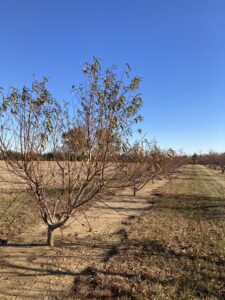 Once leaves begin to turn yellow, brown, and drop off, you can stop supplemental watering. However, if you are in a prolonged drought, as we are currently, there are some factors to consider. For perennial crops that overwinter, severe drought can compromise their ability to store sufficient reserves, which can lead to reduced vigor and potential losses during the winter. It can be the case that during periods of drought, plants may invest more energy into developing deeper root systems; however, over a prolonged period of time, persistent stresses can hinder root development, which can negatively impact water intake and nutrient availability. Additionally, whereas hydrated soils can buffer the penetration of freezing temperatures through the soil surface, dry soils do not offer the same protection, and freezing temperatures can penetrate deeper.
Once leaves begin to turn yellow, brown, and drop off, you can stop supplemental watering. However, if you are in a prolonged drought, as we are currently, there are some factors to consider. For perennial crops that overwinter, severe drought can compromise their ability to store sufficient reserves, which can lead to reduced vigor and potential losses during the winter. It can be the case that during periods of drought, plants may invest more energy into developing deeper root systems; however, over a prolonged period of time, persistent stresses can hinder root development, which can negatively impact water intake and nutrient availability. Additionally, whereas hydrated soils can buffer the penetration of freezing temperatures through the soil surface, dry soils do not offer the same protection, and freezing temperatures can penetrate deeper.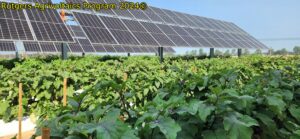
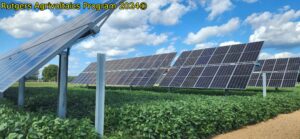
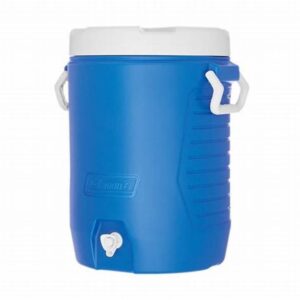 Protecting yourself and other workers from heat stress may involve purchasing some supplies for your farm operation. Some suggestions for items that may be used to “Beat the Heat” include water coolers, shade structures, fans for air movement in packing facilities, head coverings, sunscreen, and other things to help make a person cooler and more comfortable when working during high temperatures and/or in intense sunlight. Also, some companies listed also offer weather measuring devices to monitor environmental conditions for considering heat stress management decisions.
Protecting yourself and other workers from heat stress may involve purchasing some supplies for your farm operation. Some suggestions for items that may be used to “Beat the Heat” include water coolers, shade structures, fans for air movement in packing facilities, head coverings, sunscreen, and other things to help make a person cooler and more comfortable when working during high temperatures and/or in intense sunlight. Also, some companies listed also offer weather measuring devices to monitor environmental conditions for considering heat stress management decisions. 